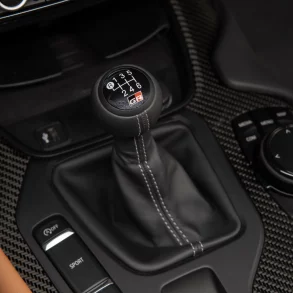Sales of New Cars In Japan – Data, Trends, Charts & Analysis
Here you will find annual car sales figures for Japan. These statistics are Total Market Volumes, which include passenger cars as well as light commercial vehicles (LCVs).
The figures below come from unconfirmed sources and can vary slightly from other data you may find elsewhere. Despite our best efforts to find the most reliable data, we can’t guarantee 100% accuracy, unless a specific source is mentioned below the table. Still, we’re confident the provided data is sufficiently indicative of the size and trend of the market to be published as such. If you have access to a confirmed source of Japanese car sales figures, including a split between Passenger Cars and LCVs, or data going back before 2005, please get in touch with us.
Japan Automotive Sales Data & Recent Highlights
As you can see, the Japanese car sales market has been declining in recent years. There was a sharp decline in sales in 2020 due to the COVID-19 pandemic, and the market has not yet fully recovered.
There are a number of factors that have contributed to the decline in the Japanese car sales market. These include the fact that the Japanese economy has been struggling in recent years, which has led to a decrease in disposable income. The Japanese population is aging, which means that there are fewer young people who are buying cars. The rise of ride-hailing services: Ride-hailing services, such as Uber and Lyft, have made it more convenient for people to get around without owning a car. Japanese automakers are slowly shifting their focus to electric vehicles, which has led to a decline in sales of traditional gasoline and diesel cars.
Despite the decline, the Japanese car sales market is expected to stabilize in the coming years. The economy is expected to recover, and the government is taking steps to address the challenges facing the market, such as providing incentives for electric vehicles.
Some of the trends in the Japanese car sales market include the rise of electric vehicles. Japanese automakers are slowly shifting their focus to electric vehicles, which has led to an increase in sales of electric vehicles in recent years. In 2022, electric vehicles accounted for 10.3% of new car registrations in Japan. This is up from 2.1% in 2020. Diesel cars were once very popular in Japan, but their popularity has declined in recent years due to concerns about their environmental impact. In 2022, diesel cars accounted for only 12.2% of new car registrations in Japan. This is down from 26.7% in 2020.
SUVs are becoming increasingly popular in Japan, as they are seen as more practical and comfortable than sedans. In 2022, SUVs accounted for 40.2% of new car registrations in Japan. This is up from 36.5% in 2020. More and more people are buying cars online in Japan. In 2022, 15% of new car purchases were made online. This is up from 10% in 2020. The convenience and flexibility of online car buying are driving its popularity.
Interesting Japan New Car Sales Stats
- Best Sales Year Volume: 4,748,482 units sold
- Worst Sales Year Volume: 3,448,297units sold
- Average Sales Per Year: 4,205,403.1 units sold
- Total Sales Units (since 2005): 75,697,256 units sold
Top 5 Most Popular Automotive Brands In Japan
Here are the top 5 most popular automotive brands in Japan. These brands are popular in Japan for a variety of reasons. They offer a wide range of cars to choose from, they are known for their reliability and fuel efficiency, and they are affordable for many people. These brands are also local Japanese automotive brands that know the market and local tastes better than anybody else.
- Toyota. Toyota is the most popular car brand in Japan, with a market share of 45.5%. The company is known for its reliable and fuel-efficient cars, such as the Toyota Corolla and the Toyota Camry.
- Honda. Honda is the second most popular car brand in Japan, with a market share of 21.1%. The company is known for its innovative and sporty cars, such as the Honda Civic and the Honda Accord.
- Nissan. Nissan is the third most popular car brand in Japan, with a market share of 9.4%. The company is known for its stylish and affordable cars, such as the Nissan Leaf and the Nissan Rogue.
- Suzuki. Suzuki is the fourth most popular car brand in Japan, with a market share of 7.8%. The company is known for its small and fuel-efficient cars, such as the Suzuki Swift and the Suzuki Jimny.
- Mazda. Mazda is the fifth most popular car brand in Japan, with a market share of 4.3%. The company is known for its stylish and performance-oriented cars, such as the Mazda MX-5 and the Mazda3.
Japan New Motor Vehicle Sales Table
Japan New Motor Vehicle Sales Chart
Sources: Manufacturers, ANDC, JATO Dynamics.









